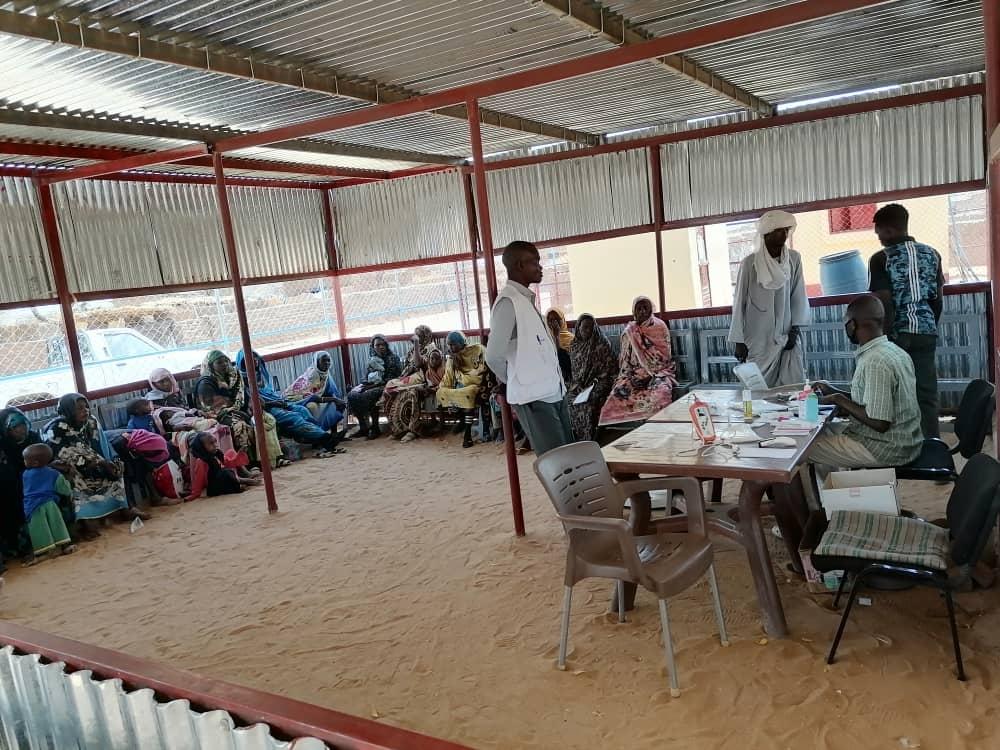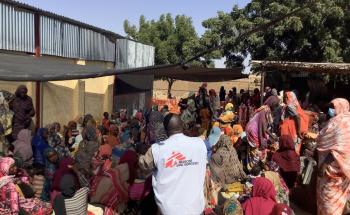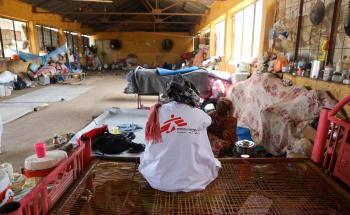First-hand account from Coralie Schaukens, MSF nurse in Sudan
Coralie Schaukens, an MSF nurse, first worked in Sudan in 2021. In May this year, she returned as medical team leader in the Bashair Teaching Hospital in Khartoum, Sudan. Coralie has previously worked with MSF in Burundi, CAR, Guinea, DRC, Yemen and Afghanistan. She shares her experience of living and working in a hospital on the frontlines of a brutal urban conflict.
This assignment was my second time in Sudan. It’s true that it creates a link with the country when you have worked there once before. We came from Ethiopia with a small team. We crossed the border there because it was one of the only ways to enter the country.
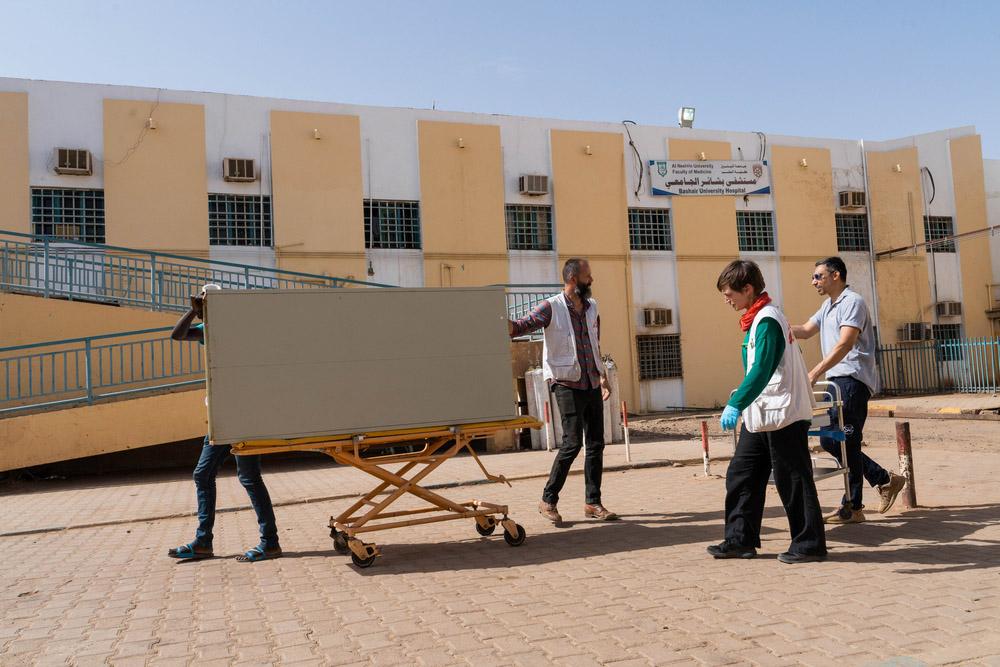
Between the explosions, there were sounds of gunshots from the streets. If it was very close, you could feel the walls shaking, the windows shaking. And the smoke… a lot of smoke around the hospital.Coralie Schaukens - MSF nurse
The change in the country is shocking. You see the tanks and some buildings destroyed on the road between Wad Madani and Khartoum. There are a lot of checkpoints. Security is not the same. The price of food is increasing. If you have electricity, you are lucky. Everything is critical.
We arrived at the Bashair Hospital in Khartoum. It was almost empty. We started to work with the material and the people we found there. This is a normal hospital with different departments: maternity, a department for vaccinations, emergency, internal medicine, and so on. Because of the war, most departments are not working. When there is a war in a country, there are needs everywhere, but surgery is something very technical, and I think that MSF has something to add to the experience that we have.
We could hear the sounds of war all the time we were working. There were planes circling. They would fly over, and within a few minutes or within an hour, the bombing would start. The bombs coming in, and then the response with heavy weapons from the ground. Between the explosions, there were sounds of gunshots from the streets. If it was very close, you could feel the walls shaking, the windows shaking. And the smoke… a lot of smoke around the hospital.
Several times, members of the team lost family members in bombing. We didn’t sleep a lot, but sometimes during the night, we were unsure if it was real because it starts to be a little bit of a mix between your dreams and the reality.
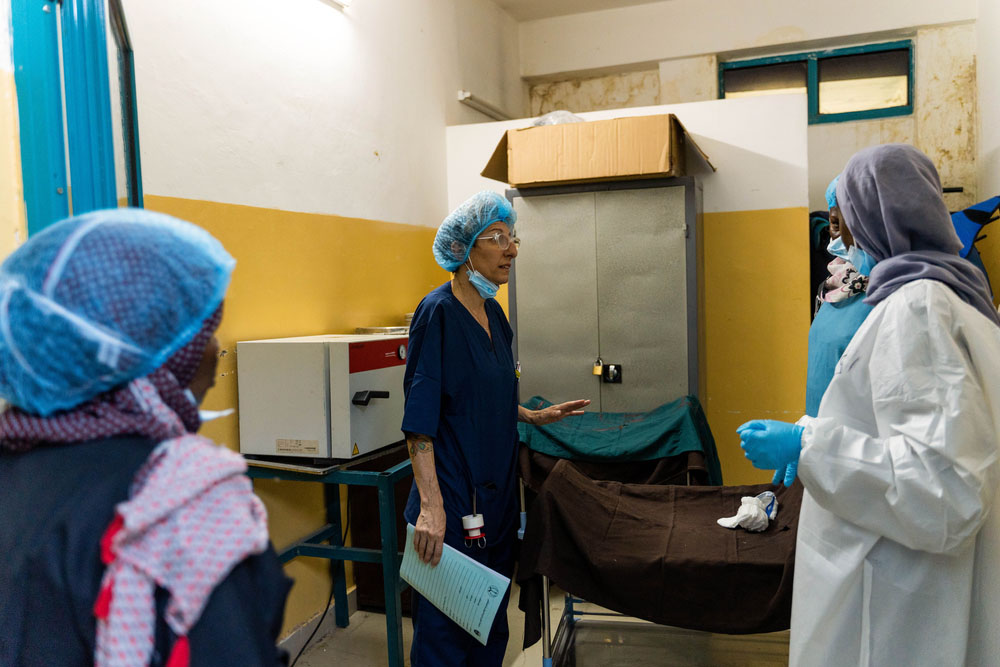
Khartoum Surgical Team
I was impressed by the dynamic of the volunteers we worked with. I’ve never seen that in another place. We stayed in the hospital with them and tried to organise things together. There were a lot of medical students, nurses, doctors, and different profiles. Some were dedicated to data, some were moving patients from one area to the next, and some were cleaning the surgical ward. Some were very helpful for the translation between the patients and the medical team. We built something together with the Sudanese colleagues. We really built something.
We admitted all the patients with surgical needs. We did all the lifesaving surgery that we were able to do. It could be an amputation for a diabetic patient, for example. I remember we had a small three or four-year-old child who had swallowed a nail. It’s something that happens, a domestic accident. We admitted this patient, and we operated.
Because of the conflict, it has become extremely complicated for patients with chronic diseases to get their treatments. Almost every day, I had someone coming to me to ask for insulin. We also had – especially during the night – a lot of patients with asthma crises. We had some medication for diseases like hypertension, asthma and HIV. So we were able to do a little bit more then.
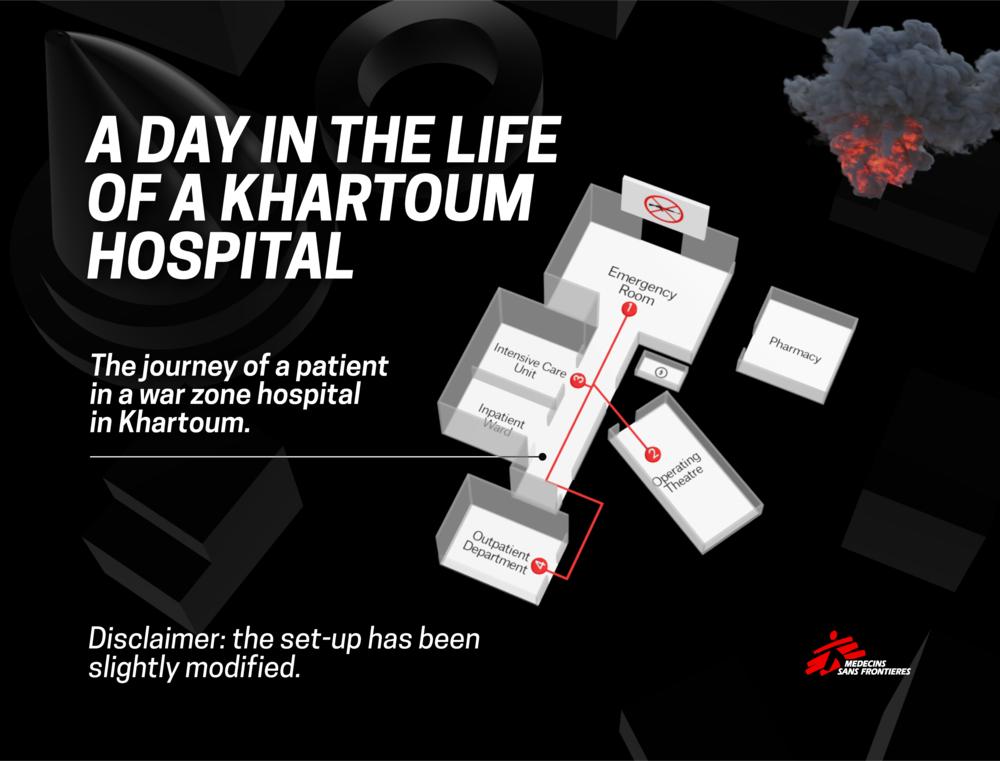
One day a father arrived with two of his sons. It was after a big explosion. We heard the explosion and went to the emergency room. A few minutes later, he arrived with the two children. One had shrapnel in the abdomen. He was critical. In a few minutes, we had him in the operating theatre. The other one had an extremely bad injury to the leg. The limb was destroyed without any hope of repairing it. I had to discuss this with the father because we needed his consent to make the amputation. With a lot of dignity, he was crying and refusing.
Seeing the suffering in this father’s eyes, I felt a lot of emotion. Ultimately, I told him that if it were my son, I would consent because it was the only way to save his life. Both children came through the surgery okay and were later referred, and accompanied by their father, to a hospital outside of Khartoum where they could continue their treatment. This kind of intense experience is almost routine in this project.

